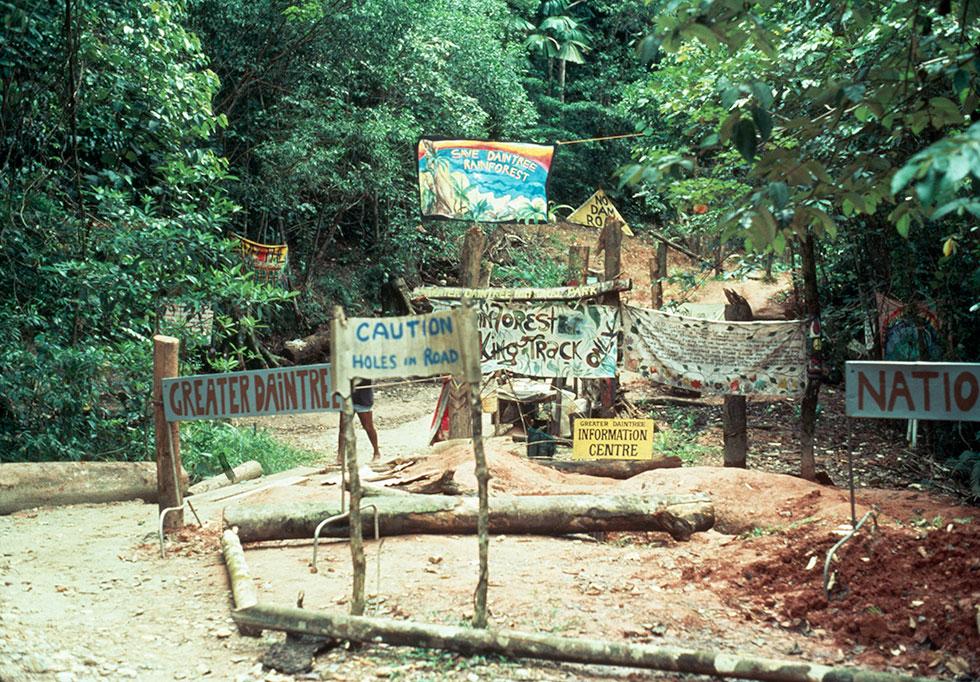


This record is a photo taken of a protest site in 1984 in the Daintree rainforest. It shows a dirt road that has been blocked using logs and protest signs.
The Daintree rainforest is one of the oldest tropical rainforests in the world and home to many unique animals and plants. In 1983, a local council began building a 37-kilometre road from Cape Tribulation to Bloomfield, through the Daintree rainforest, which would cause significant destruction to it. The road was constructed mostly on the walking tracks of the Kuku-Yalanji people, the traditional owners of the area.
Environmental conservationist groups came together to oppose the project. They protested this project in several ways; from physical blockades, where they chained themselves to machinery and created road blockages using signs and logs, to letters and postcards sent to parliamentarians.
The campaign to save the Daintree resulted in nation-wide and international awareness of the issue. Although the protestors were unsuccessful in stopping the road from being built, their actions paved the way for the Daintree rainforest to be listed as a UNESCO World Heritage site in 1988.
World Heritage sites are places that the United Nations Educational, Scientific, and Cultural Organization (UNESCO) have declared to be of ‘Outstanding Universal Value to humanity,’ and therefore worthy of protection.
The Australian Government is responsible for the protection and management of its 20 World Heritage sites, including the Daintree Rainforest. Commonwealth laws enable the Australian government to place restrictions on – or even refuse – construction plans that would impact a site’s heritage value.
The High Court of Australia has found that Commonwealth has power to protect World Heritage under the Australian Constitution. If a state government were to approve a project that would damage a UNESCO World Heritage site, the Australian government could use its powers to override these plans. As a result, it would be harder for a project like the road that was approved in 1983 to go ahead today.
Related records
Related themes
Need help with your research?
Learn how to interpret primary sources, use our collection and more.





